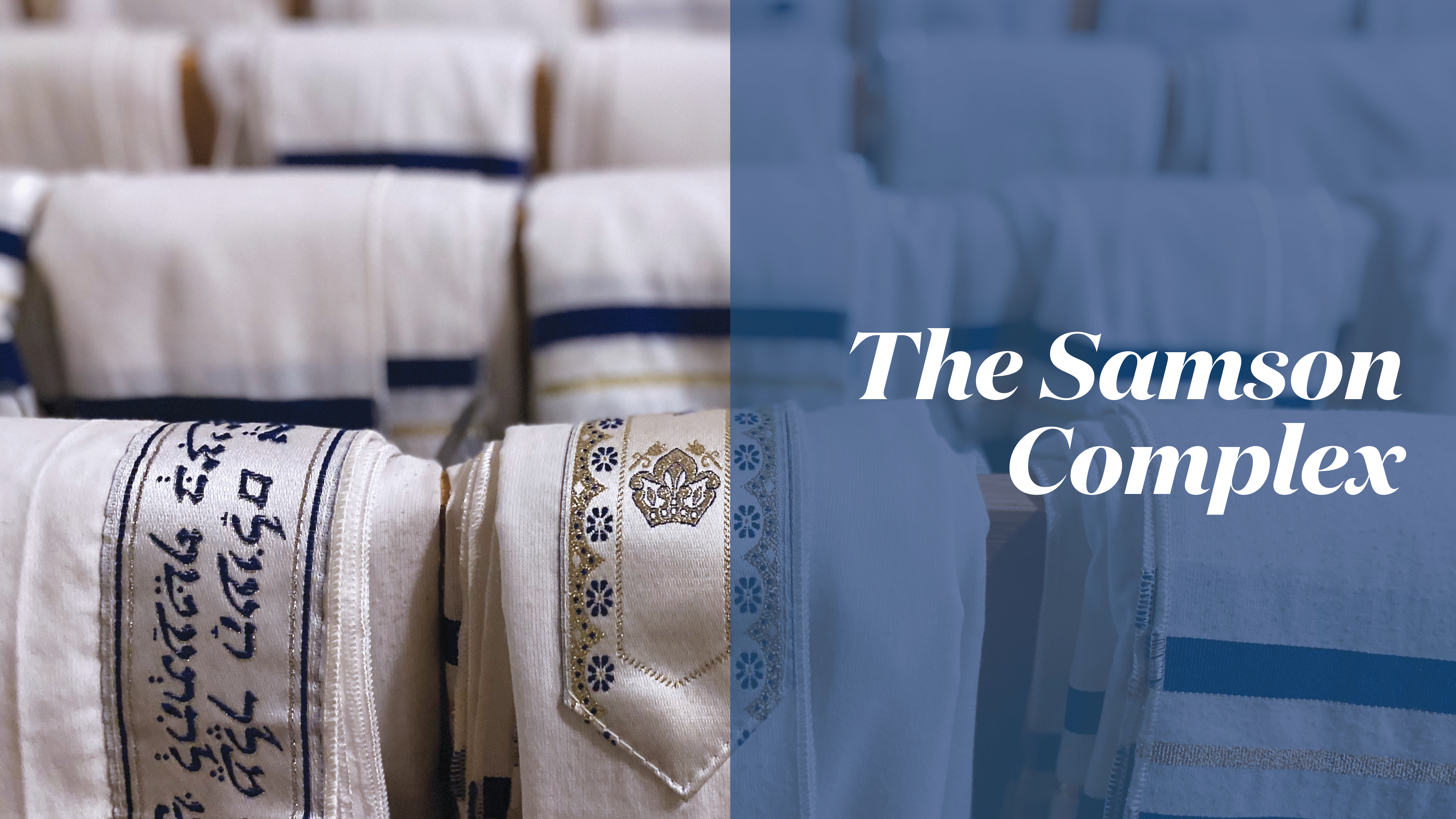
Thirty years ago, a teacher of mine, Ed Greenstein of Tel Aviv University, suggested a fascinating theory regarding the biblical figure of Samson. Destined in utero for greatness as Israel’s savior, Samson would grow up to be an irresponsible and uncontrollable Hebraic Rob Roy. Unlike the other Judges of Israel, Samson never led his people in combat. He seemed to ignore his Nazirite vows, always telling riddles. He married a Philistine woman and otherwise showed little interest in being a role model. Outsmarted by Delilah, he is blinded and degraded. Famously, the story concludes with Samson summoning his remaining strength to bring the Philistine temple down upon his enemies. Samson dies a martyr, impulsive, flawed and full of surprises to the very end.
there are a few possibilities when it comes to approaching the Jewish state. You can – as some in the religious Zionist camp do – see in Israel the fulfillment of the divine plan. Israel’s decisions, right or wrong, are always right; after all, they are a reflection of providential design. Our child, as it were, will always walk on water. Another possible response – characteristic of the secularist camp – celebrates the normalization of society in Israel. Israel was created “to be like all other nations.” Prostitutes, thieves, Hebrew-speaking and otherwise, are to be accepted, whether or not they reflect any Jewish values. The goal, after all, is not to be a Jewish state, but a state where Jews can be normal. By this thinking, anyone who holds Israel to a higher standard than any other country forgets that the very point of Israel is to be like any other country.
But as any parent will tell you, be your child Samson or otherwise, neither option one nor option two is really viable. It is both unreasonable and, for that matter, unhealthy to think that our children, in all their flawed humanity, should live up to some idealized standard disconnected from who they are. At the same time, it hardly seems responsible to parent without setting expectations – expectations to which our flawed children can aspire. In other words, good parenting (and I am only 10 years into it) involves a constant process of idealism and recalibration, in which we set expectations and then back off, in order to let our children aspire toward goals without inflicting on them unreasonable anxiety brought on by trying to attain the unattainable. And, of course, the most important part of all: we never, ever – even when they stumble, even when they fail, even when they disappoint – we never leave the side of our children. Perfection is not a pre-condition to loyalty. We can say what we need to say in private. But whether it is done in public or private, that criticism must always come from a place of love, a place of support, born of a belief that while our child may stumble, they can and will grow up to be the person they know they can and want to be.
And when it comes to Israel, that is the only option with which to move forward. If we want to break the cycle of expectation and disappointment, then we need to, at one and the same time, allow for Israel to strive towards self-expression on her own terms, and yet all the while we must never give up the belief that Israel presents a momentous opportunity to give national expression to historic Jewish values. There are those in this world who hold Israel to a double standard, who distort Israel’s record, all the while forgetting the existential threats that Israel faces, threats emanating from nations whose track records make Israel look positively princely. Their hypocrisy, nevertheless, does not excuse us from our own obligations. As lovers of Israel, as ardent Zionists, when Israel does stumble, which she will, we pick her up off the ground, dust her off, tell her not to run so fast, and then watch and pray as she finds her stride once more. To do otherwise –to hold Israel to an impossible standard, or to simply write off her shortcomings as the cost of doing business – is unfair to Israel, unfair to us and unhealthy for our relationship.
This past week in Israel, I went to a place I had never been, a place that I recommend you go next time you visit: Trumpeldor Cemetery, situated in the heart of a downtown Tel Aviv. From a single spot, you can see the graves of Israel’s founding fathers – Max Nordau, Ahad Ha’am, Saul Tchernikovsky, Meir Dizengoff, Hayim Nachman Bialik among others. It is the pantheon of dreamers without whom the state of Israel would never have come into being. I stood there with my congregants, looking at those names, thinking of their dreams, with the hustle and bustle of modern Tel Aviv all around. The juxtaposition said it all. In that sacred space between the dream and the reality, the expectation and the actuality, Israel lives and Israel struggles, and there the secret to Israel’s vital future will be found.
